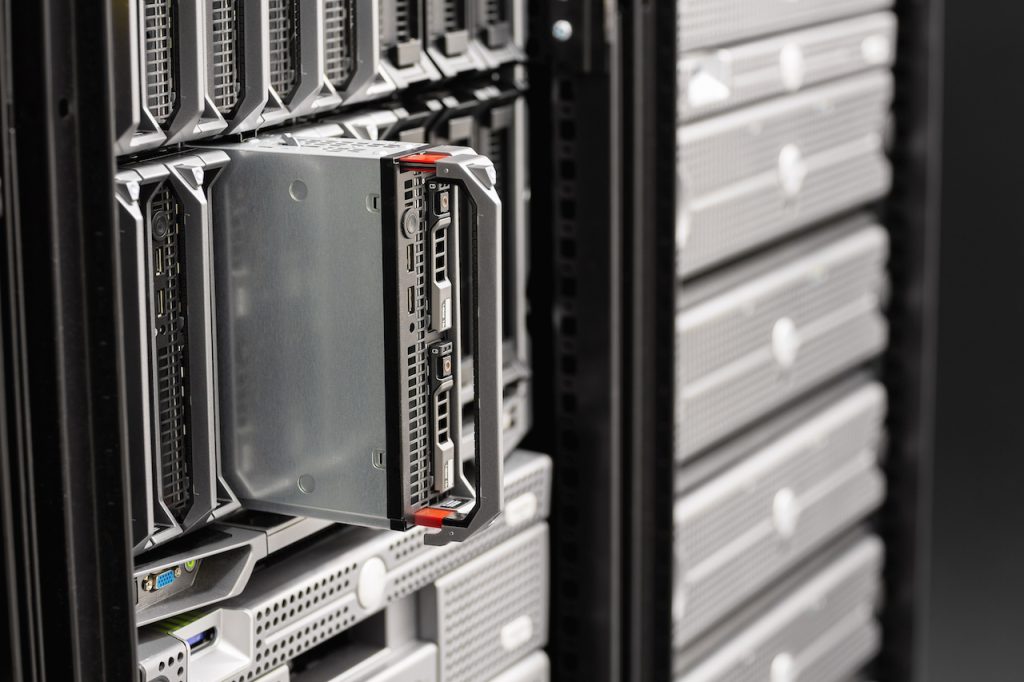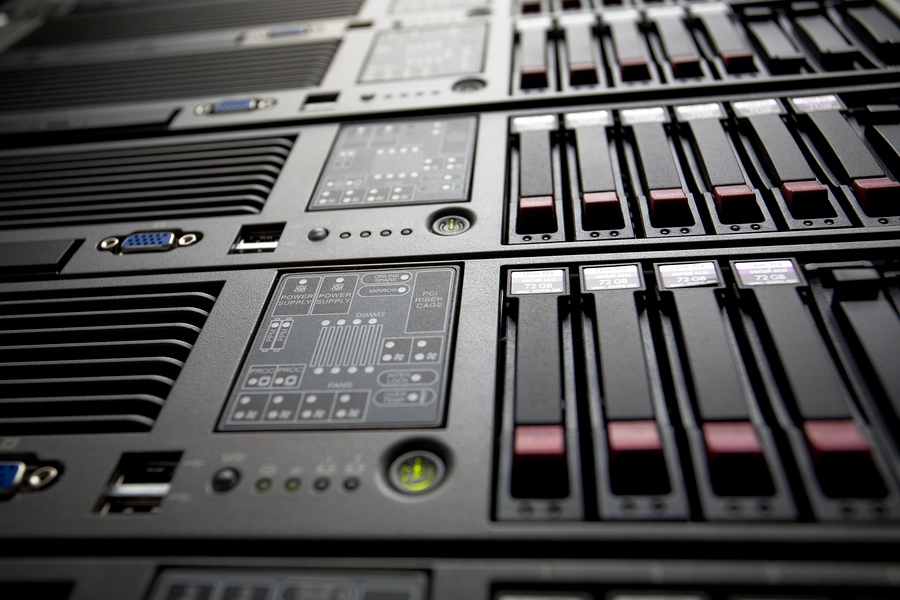Archive for the ‘dedicated server’ tag
Top 6 Reasons Why You Should Choose Bare Metal Servers no comments

When it comes to choosing the right server infrastructure for business, making the right call is important because the right infrastructure can help in the growth of your business. One of the choices to make is bare metal servers, also known as dedicated servers. Bare metal servers are physical servers customized to host business applications and services. Moreover, users can further rent these private servers from a web hosting provider that is not shared with any other tenant or customers.
Businesses and enterprises look for scalability and cost-effectiveness that don’t compromise performance, security, and customization. In this context, it’s important to explore the reasons why businesses should choose bare metal servers and how they can leverage them to improve their operations.
Performance
Bare metal servers excel in performance over cloud or virtual servers as they have dedicated hardware resources so that they can utilize all the resources at hand. When the hardware resources are customized strictly just for one client, then no virtualization overhead can slow down the server. A bare metal server’s performance makes it ideal for high processing power tasks with low latency. Therefore, bare metal servers are capable of handling high-end applications and tools such as machine learning, artificial intelligence, big data analytics, and others.
Customizability
Bare metal servers provide customization options more than any other hosting solution. Businesses with bare metal servers have complete control over the hardware and software configurations over time. So, if business requirements grow over time, bare metal servers are configurable in every way. Configurations include CPU, RAM, SSD, hard drive, bandwidth, and other options. Therefore, a tailored approach to customizable infrastructure results in higher performance and stability.
Suppose a business or any other service, such as an airport or hospital, is running a resource-intensive application, such as dealing with continuous amounts of extensive data. In that case, a dedicated metal bare server can manage the workload. Moreover, if there’s more overload, say during the holiday season at the airport, bare metal servers are capable of handling it as it can be further customized.
Access to physical hardware
As bare metal servers are physical servers installed on-sight, they are accessible at any time. As the sole tenant of the dedicated server, you can be worry-free about any potential data breaches as such scenarios might happen with shared servers otherwise.
As a business or enterprise, when you are the administrator of the infrastructure of a bare metal server, you have full control over the environment, including resources and security. Besides access, it also gives reliability over shared networks, as applications running on dedicated servers have better uptime and low latency.
Security
Businesses and enterprises that don’t want to compromise on data and look for consistent and reliable performance always go for bare metal servers. Enhanced security is automatically guaranteed when the physical server is separate and is not shared with any other tenant. In the case of shared tenants, there’s a risk involved in cyber-attacks and data breaches if your tenant software is not secure enough, and you also stand a chance to bear the brunt.
Physical security is also ensured due to bare metal servers. Physical theft or tampering is reduced because access to the server is restricted to authorized individuals. Security measures such as biometric authentication, surveillance cameras, and access controls can be taken for foolproof security.
Low upfront expenses
Imagine paying upfront for the only thing that you need, and not everything else comes with it. Where you also have the option to add more resources in the future if there’s a need. Bare metal servers do that, as you only pay for the resources you need. Bare metal servers also have a low cost of ownership compared to virtual servers where you have to pay for the resources even if you are not utilizing them. Ownership of bare metal servers is also beneficial as they have long lifespans and low maintenance costs.
Although it may feel like bare metal servers have a higher upfront cost, this is just one time. With virtual servers, licensing fees, and storage quickly add up over time. A one-time hard swallow of a bitter pill is always better than swallowing bitter pills now and then. Due to low balancing deployment costs and overall server performance, bare metal offers a straightforward and convenient solution with significant savings on computing resources.
Scalability at your door
Imagine hosting your data on a virtual network or in-house physical server hardware, and you witness an unexpected spike in volume, and you need to scale up the infrastructure. You can do that, but there are two drawbacks. One is it won’t be urgent so you will have to wait. Secondly, you will end up paying more for the resources that were already sitting idle.
Bare metal servers work, on the contrary, as they give a localized set-up along with access to tools such as performance and usage analytics so that the IT team can optimize and scale server infrastructure when there is high demand.
Another benefit of bare metal servers is that they can be added to an existing infrastructure quickly and easily. Bare metal servers can be deployed and configured in a matter of minutes. It can help businesses and enterprises scale up their infrastructure to meet higher demands quickly.
Conclusion
If you are starting a new business or already have a business and thinking of changing your data server altogether, then bare metal dedicated servers should be your go-to choice as they are low-cost alternatives that can help you in growing and meeting changing needs over time. As a business, you can leverage the benefits of bare metal servers to improve operations, increase productivity, and gain a competitive advantage in the market.
Follow Us :Share :
Dedicated Servers You Can Choose in 2023 no comments

What are dedicated servers
Dedicated Servers (also known as Bare Metal Servers) offer the highest level of service with the ultimate combination of performance, value, and security for your cloud-based hosting needs. Unlike cloud or virtual servers, a dedicated server provides you or your business with exclusive access to all the physical hardware in the server.
Dedicated servers are typically more powerful and reliable than shared servers, which are used by many different customers. They are also far more flexible than other hosting options, giving your organization full control over the security settings, choice of operating system, hardware configuration, and what applications you want to run on the server.
Dedicated servers can be used for a variety of purposes, including hosting websites, running software applications, and storing/managing data.
Application of dedicated servers
There are many practical applications for dedicated servers as their serving of a single network makes them an easy solution to employ. Some of the applications include the following:
• Hosting websites
Dedicated servers are commonly used to host websites, as they provide the necessary resources and stability to handle high traffic. If a website is being hosted on a shared server, then the website may face some performance issues, hence dedicated servers are a better alternative to them.
• Software applications
Dedicated servers can run software applications that require a high level of performance and reliability, such as databases, email servers, and other business-critical applications. For example, big corporations, companies, and hand hospitals have software solutions that require a dedicated server for handling all the related data.
• Gaming
Dedicated servers are used for hosting online gaming competitions. When a large number of players are participating, it requires a server to host a big amount of data.
• Data storage and backup
Dedicated servers can be used to store and manage large amounts of data, and to create backups to protect against data loss. It makes them a handy tool for small organizations.
• Streaming
Dedicated servers can be used to stream video and audio content, such as live events, to large audiences. For example, Netflix and Disney+ have their large-scale dedicated servers to host the data being consumed in large amounts.
• Cloud computing
Dedicated servers can be used to create a private cloud infrastructure for businesses, providing a high level of control over the data and applications being run. Many medium to large-scale corporations use cloud computing solutions so they opt for dedicated servers.
• Machine learning
Dedicated servers can be used to power machine learning workloads, as they provide the necessary resources being fed all the time to train and run complex models.
• IoT
Dedicated servers can be used to process and store data from IoT (Internet of Things) devices such as sensors and cameras and handle communication between devices.
• Virtualization
Dedicated servers can host multiple virtual machines with different operating systems and software, allowing different users to share the same server resources. This is particularly helpful in big offices where employees use different operating systems on their machines.
• E-commerce
Dedicated servers can be used to run e-commerce platforms that handle high traffic and require a high level of security and performance. E-commerce giants Such as Amazon, Alibaba, BestBuy, Shopify, and many others run on dedicated servers.
Factors to consider for choosing dedicated servers
The choice of a dedicated server should be driven by the needs of your business. Although dedicated servers come in a different number of cores and clock speeds, you can choose the number of cores as per requirement. More cores and higher clock speeds, although costs more, will provide more processing power for running high-end tasks such as databases, hosting websites, and running applications.
The RAM factor on dedicated servers is configurable. More RAM will allow for more applications to run concurrently and smoothly. Consider the type and speed of the network connections available on the server. A faster connection will improve performance, especially for tasks such as hosting websites and running applications.
The scalability option is the best solution for whichever dedicated server you choose for your business. A dedicated server that can be easily scaled up or down as per business requirements will be more flexible and cost-effective in the long term.
Enterprise Series Dedicated Servers
TurnKey Internet’s Enterprise Series is a line of enterprise-grade Dell PowerEdge R650xs bare metal servers. The servers are designed for businesses of all sizes and are used for a wide range of applications, including data centers, cloud computing, and high-performance computing. Enterprise Series servers feature the latest 3rd Gen Intel Xeon Scalable Processors, allowing your businesses to easily scale up or down as the needs change.
Enterprise Series servers can be configured with 2 Intel Xeon CPUs and large amounts of memory, allowing them to handle the most demanding workloads. They include a 10 Gigabit Ethernet (10Gbps) network connection and feature a variety of management tools, which allows for easy monitoring, updating, and troubleshooting of the servers.
The Best cPanel Dedicated Server
The Best cPanel Dedicated Server from TurnKey Internet provides the perfect combination of security, performance, features, and cost for the ultimate cPanel Web Hosting Server. This package is perfect for any sized business to host their own website, manage a portfolio of websites, or even resell websites for others as a Reseller or Marketing Agency.
This package offers a complete all-inclusive fully managed service including software licensing for cPanel/WHM, enterprise-grade server backups, and the premium high capacity DEDICATED server with RAID and SSD ultra fast disks.
Conclusion
If you are still unsure which configuration to choose for your business needs, TurKey Internet can help you as we offer many configurations and can provide guidance. To view all of our Dedicated Server options click here, or contact us today to speak with one of our experts!
Follow Us :Share :
Server Location: Why it’s important for your business no comments

What is server location
Server location refers to the physical location of a server. It can be termed as a place where the server is hosted, and the data is stored on those servers. A server or servers are located in a data center, or a co-location facility, or if a corporation is big enough, it can afford to have its server room.Server location refers to the physical location of a server. It can be termed as a place where the server is hosted, and the data is stored on those servers. A server or servers are located in a data center, or a co-location facility, or if a corporation is big enough, it can afford to have its server room.
Importance of server location
Choosing a server location is an important factor if you are conscious of the performance, accessibility, compliance, and especially the cost of a server. The location of a server can have a significant impact on how well it performs, how easily it can be accessed, and how much it will cost to host. There are many other factors when choosing a server location, and one by one they are discussed below.
Latency
Latency is the amount of time it takes for data to travel between the server and the user. The closer the server is to the users, the lower the latency will be. This is especially important for applications that require real-time data, such as online gaming or video conferencing, social media applications, maps, and live streaming. Low latency ensures that users can access the data they need quickly and with minimal delay, which improves the overall user experience and satisfaction.
Bandwidth
The available bandwidth is the amount of data that can be transmitted to and from the server. A server located in a region with better connectivity will have access to more bandwidth. This is important for applications that require large amounts of data to be transferred, such as streaming services or online backups, social media applications, and online games.
Data sovereignty
Some countries are very strict when it comes to data, and they even have enacted laws. The European Parliament has defined data sovereignty as “Europe’s ability to act independently in the digital world”. Therefore, many countries require data to be stored within the very country’s borders. In such cases, the server location should comply with the data laws prevalent in that country. Data sovereignty is a complex issue, and businesses must ensure that they comply with the laws of each country where their data is stored.
Power reliability
Power reliability is an important factor to consider when choosing a server location. Some locations may have more reliable power supplies than others. There are some countries with enough power supplies that even have attracted big corporations to set up servers in their country. Servers rely heavily on power as they need to be running 24/7. A server located in an area with a reliable power supply is less likely to experience downtime due to power outages
Natural disasters
Natural disasters should also be a factor when choosing a server location. Some locations are more prone to natural disasters such as hurricanes, floods, and earthquakes, while some are not. It all depends on the geography and topography of that location This can affect the availability of the server. For example, a server located in an area prone to hurricanes may experience downtime during a storm, which can put people in even double trouble as they can face difficulty in connecting with loved ones and friends.
Climate
Climate is another factor to consider when choosing a server location. Temperature and humidity can have a direct impact on the hardware and cooling of a server. A server located in a region with a cooler climate will have less stress on the cooling system, which can help to improve the lifespan of the hardware. Therefore, most of the biggest servers are located in countries where the temperature is cold or moderate as it also reduces the cost of cooling down the servers.
Cost
Cost is another important factor to consider when choosing a server location. The cost of hosting a server in a particular location varies in terms of logistics and operational costs. Some countries see server locations as less environment friendly whereas some countries welcome them to lure investment. Combining this with the temperature factor, and lower costs for electricity and cooling can help to reduce the overall cost of hosting a server.
Overall, server location is an important consideration when it comes to the performance, accessibility, compliance, and cost of a server. Businesses must consider factors such as latency, data sovereignty, bandwidth, power reliability, natural disasters, climate, and cost when choosing a server location. By carefully considering these factors, businesses can ensure that they choose a location that best meets the needs of their users and their business.
How server location impact websites
Server location can have implications for the website, no matter what sort of website you are running. There are ways where server location affects your website.
Search Engine Optimization (SEO)
Search engines use the geographic location of the server to determine the relevance of a website for specific geographic regions. If your website’s server is located in the same country as the majority of its visitors, it is considered by the traffic engines such as Google, Bing, or Yahoo to be more relevant for that country and may rank higher in search results.
Website Speed
The distance between the server and the users accessing the website can affect the latency, which is the amount of time it takes for data to travel between the server and the user. The closer the server is to the users, the lower the latency will be. This can result in faster loading times and a better user experience for the website’s visitors.
DDoS attack
Distributed Denial of Service (DDoS) overwhelms a server or website with traffic from several sources to render it unavailable. The attack can be lessened, and the website kept online by placing the server in a location with superior DDoS defenses.
Conclusion
Server location can have a significant impact on the performance and accessibility of a website. Factors such as latency, SEO, legal compliance, DDoS attack, and backup/disaster recovery should be considered when choosing a server location. Choosing the right server location can help to improve the user experience.
Follow Us :Share :
When Do You Need a Dedicated Server? no comments

With the ever-growing need for IT resources, many businesses are turning to dedicated servers as they offer a powerful way of hosting. But how do you know if this is the right choice?
A great start would be assessing your current situation and seeing where any pain points arise that could use some attention from our team!
What is a Dedicated Server?
A dedicated server is a single physical server, housed in an off-site data center that is entirely dedicated to one user or organization. These servers are known for their high-performing features in processing power, storage speed, and connection to high-speed internet. If your business needs a large amount of processing power, then a dedicated server is the right choice.
How to know when you need a dedicated server?
Backup solution
Planning and implementing your IT infrastructure is one of the most important decisions you will make for your business. Backing up your critical data is a simple and essential step in protecting your business. A proper backup and data storage solution along with full business continuity and disaster recovery plan, work together to reduce threats to your business. A server can function as a secure environment for mission-critical data and more.
Flexibility
As your business expands, dedicated servers can accommodate your growing business needs. Compared to other hosting options, dedicated servers give you ultimate flexibility and resilience. Dedicated server hosting enables businesses to control resources without any restrictions and can be upgraded or scaled back easily within the limits of your contract.
Security
The key advantage of dedicated servers is security. Since you are not sharing resources with other users; it is for your exclusive use only – the security of your server is entirely in your hands. Controlling what happens with your server’s operating system and its applications puts you in the driver’s seat. You won’t need to worry about other users and their potentially outdated applications or bad code. An off-site dedicated server in a secure data center will protect your server from power outages and any other physical harm (robbery, flooding, etc) in addition to having 24/7 support vs an on-premises server.
Performance
A dedicated server is entirely dedicated to you and you alone. This means that users of a dedicated server do not have to share any of its resources with other users. Your dedicated server will give better performance. This way you can enjoy the best of both worlds when it comes to hosting as the performance and reliability are not impacted by others.
When deciding which hosting solution to go ahead with, it is essential to consider your business needs, and how much it’s likely to scale shortly. So, what works best for your business? Contact TurnKey Internet today and we will help you choose the best hosting solution for your business.
Follow Us :Share :
Top 3 Reasons Why You Need a Dedicated Server no comments

The flexibility and scalability of cloud computing have transformed the IT industry, but there are still times when the stability, control, and performance power of a Dedicated Server may be the solution you need for your business.
With a Dedicated Server, your business has exclusive use of that server’s resources. You also have the flexibility of customizing the server’s CPU, RAM, and disk space based on the needs of your business.
What is a Dedicated Server?
A Dedicated Server is a physical bare metal server with dedicated resources, including CPU, RAM, storage, and network ports. A Dedicated Server has been dedicated to a single tenant. In other words, it’s not shared with anyone else. This contrasts with virtual servers, which are created using virtualization software and can be shared by multiple tenants.
Here are 3 top reasons why you should choose a Dedicated Server:
No Shared Resources
Dedicated servers dedicate all computing resources to a single user. Every bit of power, storage, and bandwidth is exclusive to you and no one else. Not only will this give your business more room to work with and expand, but it will also prevent issues with your site caused by other websites.
Custom-build your ideal environment
Dedicated servers allow your business to customize the hardware and software based on your business’s unique needs, including server configurations, RAM, SSD hard drives, bandwidth options, and more. With shared hosting, you are limited to the software already installed on the server, and sometimes it may lack a requirement or feature your business needs. But with a dedicated server, you have full flexibility over which software the server runs, even down to the Operating System.
Security
Dedicated servers offer improved security. Your physical hardware is isolated from other servers and their tenants, eliminating any potential risks of data breaches and other cyber-attacks
Choosing a solution
Now if you’re worried that you’re not tech savvy enough to run your own dedicated server, consider the option of going with a Managed Dedicated Server solution, which will provide many additional benefits on top of what’s listed above. Before you decide to host your website on a shared server, consider the added flexibility, reliability, and performance that only a dedicated server can provide. Contact TurnKey Internet today and we will help you choose the best hosting solution for your business.
Follow Us :Share :
Why Website Speed Matters no comments

If you’re in a store and ready to check out but you can’t find someone to help you, chances are you’ll stick around. You may even wait quite a while since you’ve gone through all the trouble of going to a store and selecting which items you want. However, if you’re waiting a long time for a website to respond, you can be on another site making the same selections within seconds.
For this reason, it’s essential that your website runs quickly and loads within mere seconds. People have a large selection of websites that they can get information from or do business with, and you need to be sure that your site is providing what people want very quickly. Additionally, it’s not just sites that sell items that need speedy load times. Sites that generate revenue from ads also need to load quickly to prevent the loss of income.
Importance of Website Performance and Speed
It is important to understand that today’s customer is always online. This means that if they want to access information online, they will do it through multiple devices. Speed is an integral part of the user experience. This blog details the top reasons why website speed is important and why it is essential to optimize website speed.
It Can Lower Your Conversion Rate
Studies show that people are steadily becoming less patient when it comes to waiting for web pages to load; 47 percent of people expect a website to load in two seconds or less. For mobile sites, you are given about three seconds before more than half of the visitors say they will leave. Even if you’re getting people to stick around, a slow load time can drop your conversion rate.
A study done by Amazon showed that just a 0.1 second slower load time resulted in a one percent decrease in sales. While Amazon is enormous and your website may not be able to generate that much traffic or sales, it shows that even tiny slowdowns can still have a tangible effect on your business. If slow load speeds are driving people away, then it’s driving your sales away.
Search Engine Ranking
If you run a business website, you’re probably at least familiar with the concept of search engine optimization, which involves signaling to search engines that people who are searching for particular terms or phrases would benefit from visiting your site. Google, and other search engines, include user experience as a metric when determining where your website will end up in search engine results.
User experience includes several things, including the quality of content on a site, if it’s easy to navigate and how quickly the website loads. Google doesn’t generally release specific information about how metrics are weighted, but a slow website can dramatically reduce your user experience score. With SEO being so competitive, the last thing you want is a slow website dragging your ranking down.
User Experience
One of the reasons that user experience is a part of many search engine ranking metrics is because people tend to not return to websites that worked poorly for them. Research done by Statista indicates that almost 80% of shoppers will abandon an online shopping cart if the website is too difficult to use.
Having a slow website can also make visitors do more than just wait. It can also keep certain parts of your site from working because scripts still need to load. Someone may fill out a form or attempt to add an item to a shopping cart and get an error or find that nothing is happening.
Additionally, when a website is slow, it may not load properly or things on the page may start adjusting themselves, changing the locations of images and text as people are trying to read or use the site. These types of frustrations can easily send someone away from your site with a commitment to never return.
The Need for Speed on Mobile
Mobile users can be even more impatient than people on desktops. With the number of individuals using mobile devices to both surf the web and make purchases, you mustn’t be driving away customers and visitors with a slow site. In addition to needing to create mobile and desktop versions of your site, you need to be sure that mobile versions load quickly and aren’t just designed to fit on a smaller screen.
People on mobile devices often have data caps, and although powerful, smartphones have far less processing power than computers. Images need to be shrunk in terms of both pixels and file sizes, and scripts need to be kept down to the minimum required for the site to function. Along with rating user experience for desktop websites, Google also measures user experience for mobile sites. Furthermore, in the last year, they’ve started ranking mobile-friendly sites higher when people do searches on a mobile device.
Loss of Ad Revenue
Depending on the ad network that your website is hosting advertising from, you may only get credit for ad views if the ad loads properly if the visitor to the page has the ad show up on their screen, or both. If your website is very slow, ads may not be loading properly, depriving you of revenue. Google found that 25 percent of mobile sites with load times under five seconds had higher ad revenue.
Resolving Your Speed Problems
Whether you have a slow site or would just like your site to run faster than it already is, one of the first things you should look at is cutting down on scripts and reducing the size of image and media files. Scripts can slow down even a bare-bones site because they use a server’s bandwidth, processing power from the server, and processing power from the computer they are being loaded on. Unless your site – and the page that someone is on – needs a script or function to run, consider ditching it.
Media files can also dramatically increase the amount of time that it takes for a site to load. Instead of eliminating image files, see if you can’t compress them or use another file type that results in a smaller image. A small loss in image quality can cut an image’s file size in half.
Another consideration is the server or hosting provider you’re using. You may need more bandwidth or processing power, and if you’re using shared hosting, it may be time to upgrade to a VPS or Dedicated Server solution.
Speed matters. It affects your user experience; it affects your search ranking. It affects your sales and conversions. Follow Us : ![]()
![]()
![]()
![]()
![]()
Share : ![]()
![]()
![]()
![]()
![]()
When is it Time to Upgrade to a Dedicated Server? no comments

For many clients just starting out with a website or a new business, a Shared Hosting solution or Virtual Private Server (VPS) is often enough to get off the ground. But, for many there comes a point when these solutions just aren’t enough.
The most obvious sign that it’s time for an upgrade is when your website has started regularly requiring more bandwidth or power than your current plan provides. Sure, this is kind of a no-brainer, but it’s a good idea to upgrade before you start running into trouble. If your site starts topping out the charts, it could temporarily go offline and that’s not good for business. Often we will see clients’ websites explode all of a sudden because they ran a special promotion or got some good press, and we will always work with them to make the transition to a dedicated server as seamless as possible. But, if you start seeing things getting busy, you can avoid a stressful situation with a preventative upgrade.
Another time an upgrade is a good idea is when a web application transitions out of beta or the development stage. While you’re working the bugs out of your application, a VPS can work fine. With just a few developers and beta testers in the system, a dedicated server would probably be overkill anyway. Once you release your application to the public, however, you’ll want to make sure you plan for the inevitable boom in traffic. Nobody wants their newly released project going down right out of the gate!
Regardless of the content of your website, if you’re worried about stability, dedicated servers are always the safest bet. Below you will find a summary of all the benefits a dedicated server provides (and how TurnKey Internet maximizes those benefits for our customers):
- Speed and Performance: Server and network response times in a shared hosting environment depend highly on the activity of others with whom you share space and resources. With a dedicated server you have significantly faster response and page load times because all the systems resources (such as CPU, disk, RAM and network bandwidth) are controlled and utilized solely by the applications on your server.
- Reliability: With a dedicated hosting environment, you have unlimited access to the operating system, server resources and software applications. This gives you a reliable way to manage the needs of your website and database system: it’s all there when you need it. If a neighbor causes a problem by over using resources, it will not impact your website or your business.
- Security: Dedicated servers provide better security than any other form of hosting since you are the only one with the root “administrative” access to your resources (disk, CPU, RAM, etc.) and can configure customized security policies server-wide such as firewall protection, user-level permissions and even restrict the types of applications that run on the server. With other forms of hosting, such as shared hosting, the neighbors you share space with could jeopardize the security of your web and database systems.
- Customization and Flexibility: Dedicated Servers offer unlimited customization and flexibility to meet your hosting application needs. You have access to fine tune and optimize all aspects of the server such as custom versions of Apache, PHP, MySQL, Perl/CGI or custom database configurations to suit your application needs, providing substantial performance gains over any other form of hosting. You maintain full root ‘administrator’ access to the server and can install, remove, or modify any applications you wish. If you need even more power behind your hosted application, TurnKey can customize your server with additional RAM, disk and bandwidth to suit your needs or provide you with advanced enterprise level solutions such as clustering, virtualization, load balancing and mirroring of your dedicated server.
- Easy-To-Use-Software: TurnKey Internet offers easy-to-use, pre-installed and pre-configured hosting applications for your web, database and mail system needs. If you know how to use a web browser, you are ready to use a TurnKey Dedicated Server with your choice of control panel, such as cPanel or Plesk. You can even select your choice of Operating System, such as Linux or Windows.
- Multiple Domains: Dedicated servers provide a cost-effective and management-friendly solution to multiple domain hosting. Rather than dealing with the burden of numerous accounts on shared hosting servers, you can host a virtually unlimited number of domains on a single dedicated server. With our server management software, it’s easy to create, manage and delete accounts whenever you want, and all from one interface.
- Worry-Free Operation: TurnKey Internet provides Fully Managed Solutions to ensure you don’t have to worry about your server and can keep your focus on running your business. From offsite backups to managed Firewall and Security monitoring, TurnKey takes care of everything for you.
As you can see, dedicated servers are the best solution for those that are serious about their website or business and want the assurance that hardware, software and resources are dedicated exclusively to them. If you are considering hosting numerous domains, a high traffic site, an e-commerce site, reselling hosting to others, have sensitive data contained in your site or simply want more speed, power and control, it’s time to upgrade to a dedicated server. For more information visit www.turnkeyinternet.net/dedicated-servers Follow Us : ![]()
![]()
![]()
![]()
![]()
Share : ![]()
![]()
![]()
![]()
![]()
8 Tips to Get Your Website Ready for the Holidays no comments

As the holiday season draws near, it’s time to start thinking about updating your website to capitalize on the increased traffic that often accompanies this time of year. Satisfied customers and a successful holiday season will make any business owner smile, and your website can play a big role in making that happen. Taking extra time to prepare now is a good way to avoid technical problems and other issues during the holidays.
1. Optimize for Mobile Devices
Thanks to the growth of smartphones and other mobile devices, online shoppers don’t have to be chained to their computer desks to check off purchases from their holiday shopping lists. Developing a simple and functional theme specifically for your mobile users can increase your potential customer base. The easiest way to do this is to make use of responsive designs. With a responsive design, your website will modify itself automatically to create the optimal layout for the customer’s mobile device; these designs can accommodate both smartphones and tablets. Due to the smaller screen size typical of mobile devices you probably won’t be able to maintain the exact same design from your desktop version, but you can still use the same branding and color scheme.
2. Improve Your Website’s Loading Time
You may want a website with all the latest bells and whistles, but consider your website’s performance before you load it up with high-resolution graphics and elaborate scripts. Sluggish loading times on your website frustrate your customers and may encourage them to shop elsewhere. Before the holidays start, have your technical support team run tests on your website to see how fast each page loads for the average user. Changes to your design, such as reducing large images and eliminating complex coding scripts, can help your website perform better. You can also opt for a better cloud solution or web hosting server for your website to see even more improvement in loading speeds.
3. Secure Customer Data
Shopping online is always risky; some websites don’t safeguard customers’ data properly, putting these individuals at risk for identity theft and other issues. Investing in robust security software is a good way to protect your customers’ important data. Your technical support staff should keep apprised of the latest developments in online security to help your customers stay safe. To help alleviate your customers’ concerns, you can include information on your website about the security protocols that you use and offer tips on how your customers can shop online safely.
4. Offer Friendly Customer Support
Browser problems, incorrect stock levels and missing orders are just some of the common customer issues your staff will need to work through. Having enough staff on hand is an essential ingredient to helping your website survive the holidays. If possible, offer a live chat support option to those who are currently browsing your website. Keep an eye on your social media profiles in case a customer tries to reach you through those networks. Some customers may prefer to use email to get in touch with you; using a ticket system to handle incoming customer emails is a good way to keep track of issues. Help your staff to cultivate a customer-centric attitude, and try to anticipate common problems so that you can develop solutions ahead of time.
5. Boost Your Search Engine Presence
Improving your search engine rankings before the holidays begin can help fuel your success during the holiday rush. There are many ways to help boost your search engine rankings, starting with updating older pages on your website; offering fresh information to your visitors is a good way to impress search engines and show that your website is active. Adding special features, such as a blog, can also help. If your blog content is particularly noteworthy, you can expect more traffic to head your way. Your blog content should offer something useful to readers, such as tips for using your products.
6. Prepare a Festive Look
A festive design for your website encourages your customers to start thinking about the holidays. You don’t need to spend excessive money on a festive look; changing some pictures and making some cosmetic changes, such as altering the font color, can help dress up your website. Your holiday look should also include banners displaying any specials you plan to run, including discount codes.
7. Brush Up Your Social Media Presence
Social media networks offer an excellent way to connect with individual customers, generate buzz about your products and direct traffic to your website. Don’t let your social media networks sit unused with only a link to your website; update them frequently and interact with your customers. Make sure your profile on each platform matches so that you have cohesive branding. As the holidays draw near, using social media to announce your specials will help you get more interest from potential customers.
8. Beef Up Your Website’s Server
If your website is unable to handle massive amounts of traffic at once, a crowd of shoppers on big sales days could lead to sluggish performance or an outright crash. Major server problems are not something to be taken lightly; investing in the right server infrastructure for your expected traffic is a good way to avoid these issues. If your customer base is larger, you might need a dedicated server to keep your website afloat during the holidays. Dedicated Servers may cost more than basic shared or cloud hosting, but your website won’t be at the mercy of problems caused by other websites/users on the server.
Examining every aspect of your website before the holidays arrive can help you prepare a strategy to improve customer satisfaction and your own business success. A good website requires many things, including fast loading times, quality customer service and security. Working on these elements early can ensure that your website is ready long before your customers even start to think about tackling their holiday shopping lists with your business. Follow Us : ![]()
![]()
![]()
![]()
![]()
Share : ![]()
![]()
![]()
![]()
![]()
Top 5 Benefits of a Dedicated Server 2 comments

Whether you’re an online business or an individual looking for more power, flexibility, and control over your web hosting solution, the answer for you may be a dedicated server. With a dedicated server, your business has exclusive use of that server’s resources. You also have the flexibility of customizing the server to meet your individual performance and security requirements. To fully understand why a dedicated server is the better solution for you or your business, let’s take a look at the top five benefits they provide.
1. Exclusive Resources
When using a dedicated server, every bit of power, storage, and bandwidth is exclusive to you and no one else. Not only will this give your business more room to work with and expand, it will also prevent issues with your site caused by other websites. For example, if you’re site is hosted on a shared server where there is another website that is being attacked or hogging up resources, this can affect the performance of your company’s site.
2. Dedicated IP Address
Each dedicated server comes with its own dedicated IP address. With shared hosting, your site may be sharing an IP address with multiple websites. If your website happens to share an IP with a site that spams or contains malware, this can cause multiple problems. Your website can end up getting blocked, your email rejected as spam, even your search results can be affected. Another thing to consider is whether or not you’ll be running an e-commerce or selling things on your site. If so, you will need to have an SSL for your site, which in turn requires a unique dedicated IP.
3. Customization
A dedicated server allows your business to customize the hardware and software based on your company’s unique needs. Things like CPU, Memory, Hard Drive, even the speed of the server’s network port, can all be customized and upgraded on dedicated servers. With shared hosting, you are limited to the software already installed on the server, and sometimes it may lack a requirement or feature your business needs. But with a dedicated server, you have full flexibility over which software the server runs, even down to the Operating System.
4. Better Access
Another downside of shared hosting is the lack of Administrative or root access to the server. This limitation affects what software you can install as well as the settings and options that you can configure on the server. This can greatly impact the potential of what you are able to do with your website. Another advantage of administrative/root access is the ability to better monitor and troubleshoot your website, with full access to the server’s logs.
5. Better Security
With a dedicated server, you have exclusive access and can dictate who shares that access. This allows you to better secure the contents on your server and alleviates the concerns of sharing a server with malicious or careless users. Also because you have full control over the server, you can better enhance and customize its security based on your unique needs.
Now if you’re worried that you’re not tech savvy enough to run your own dedicated server, consider the option of going with a Managed Dedicated Server solution, which will provide many additional benefits on top of what’s listed above. Also if cost is a concern, check out our latest Best Value Dedicated Servers. There are countless other advantages to using a dedicated server, however the 5 above are some of the most notable. So before you decide to host your website on a shared server, consider the added flexibility, reliability, and performance that only a dedicated server can provide.
For more information on Dedicated Servers, visit TurnKeyInternet.net or call 877-539-4638 to speak with our 5 Star rated Cloud Hosting experts.
Follow Us :Share :
5 Tips to Secure Your Dedicated Server no comments
If you have a dedicated server, it’s essential that it is protected. Whether the server exists to host files for a website or is networking computers for a business, it needs to be protected from malicious software and hackers. Malicious software can include a variety of types of harmful programs, including malware, viruses and rootkits.
Failing to secure a server can lead to lost or corrupted data, damage to devices connected to the network and unauthorized individuals getting access to sensitive data. There are a number of ways that you can protect your server, and they go beyond simply having a suite of protection software in place, although that is also key.
1. Anti-malware Software
Even if you’re renting a dedicated server from a Web Hosting or Cloud provider, you still need protection against malware. Large names in security make software that can protect servers from malware, and many are available as suites that allow you to get firewall, antivirus and antispam protection all in one package. You may also decide to select individual programs to provide protection for your server. The main thing is that you have a complete set of software that protects against intrusion and will scan files for viruses and the like.
2. Keep Your System Updated
One way that hackers get into many systems is by going through weak points that developers did not notice when creating a piece of software or an operating system. This is why both computers and mobile devices need regular updates. Along with offering new options, updates close off back doors and holes in the security of software.
Therefore, it’s important that all software hosted on a dedicated server is kept up to date. For web hosting servers, that means cPanel, even content management systems (CMS) such as WordPress and the plug-ins the CMS uses must be kept current. Many operating systems and software suites can be set up to update automatically, but if you’re not comfortable with that, it’s important that you have some way of being notified when important changes are available.
3. Change Default Settings
There are a variety of default settings that come with programs and even operating systems. They include everything from preset usernames and passwords for admin access to default connection ports. Anything that is left as set up by the software manufacturer may be used as a way to gain easier access to a system.
If you can change, without causing problems for the system, addresses, folders, logins and port settings, you should do so. Even leaving the URL for admin access to a server or programs on the server can make it easier for hackers to get in. There are hacking tools that specifically scan websites and servers for default URLs and folders, so changing default login locations is important. On this same basis, it’s a good idea to make sure that directories are protected so that people cannot see their contents.
4. Use Robust Passwords and Keep Track of Permissions
Another important part of keeping your dedicated server secure is to ensure that passwords are robust and that people are only given access to areas that they need to do their job. Aside from malice, giving an intern administrative access to databases could lead to major problems through simple error.
Two key parts of keeping your dedicated server secure in relation to passwords are ensuring that simple passwords are not in use and that passwords are changed on a regular basis. There are a number of ways to tackle the issue of making sure passwords are complex enough, including using computer generated passwords or using passphrases. Computer generated passwords normally require certain characters, length and require a combination of upper and lower case letters; passphrases are combinations of words, and they tend to be easier to remember and more secure than passwords. There should also be a set time that passwords expire, which will require users on the network to change them on a regular basis.
Along with ensuring that people are only given access to parts of the server that they need to have, it’s important that permissions are updated when people leave a job or move to a different part of the company. This can be done with proper database management and doing occasional audits to ensure that access levels are appropriate.
5. Employ Brute Force Detection and Active Monitoring
Another important part of keeping a dedicated server secure is knowing what is happening with it at all times. Even the best anti-malware software cannot prevent all intrusions, and hackers are constantly figuring out new ways to circumvent security systems. Therefore, it’s important that activity on a server is always being monitored.
Things that normally indicate a problem include incredibly high data transfer or processing power use as well as multiple failed login attempts. Brute force hacking involves trying to login to a system over and over again with different login and password combinations. In addition to draining system resources, it can also eventually allow a hacker to find a combination that lets them into your system. Real-time monitoring can help detect these issues and alert the appropriate people, and it can also shut down brute force login attempts.
For those of you who feel there’s just not enough time in your day to maintain your dedicated server’s security, or if you just prefer someone else does it for you, at TurnKey Internet we got your back. We offer Fully Managed solutions that include Server Hardening. We’ll take care of securing and protecting your server so you can focus on running your business. For more information, visit https://turnkeyinternet.net




